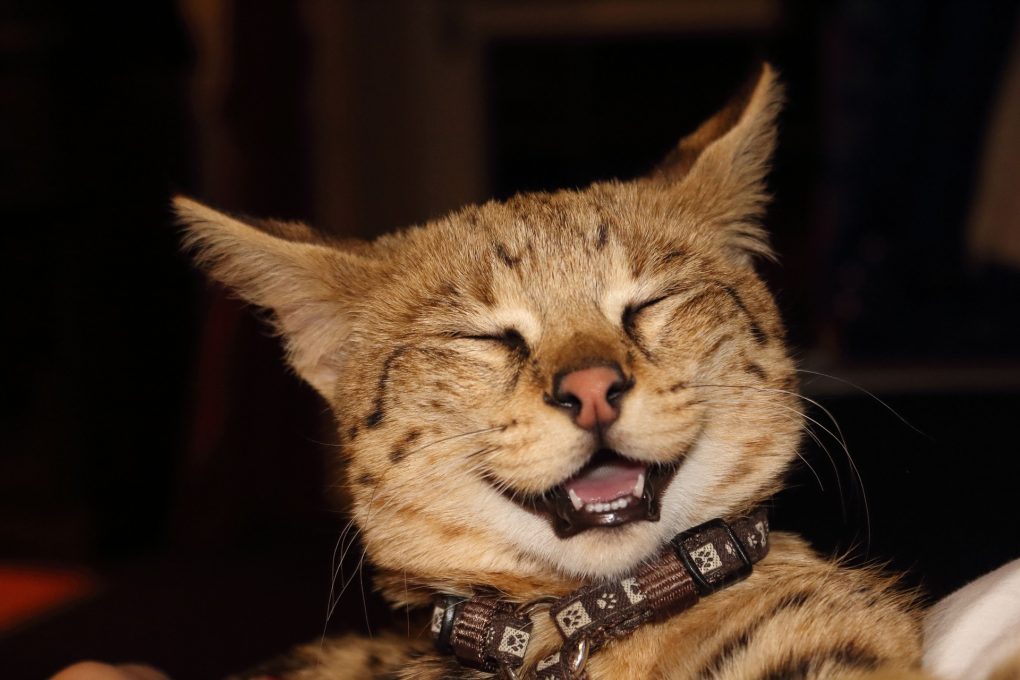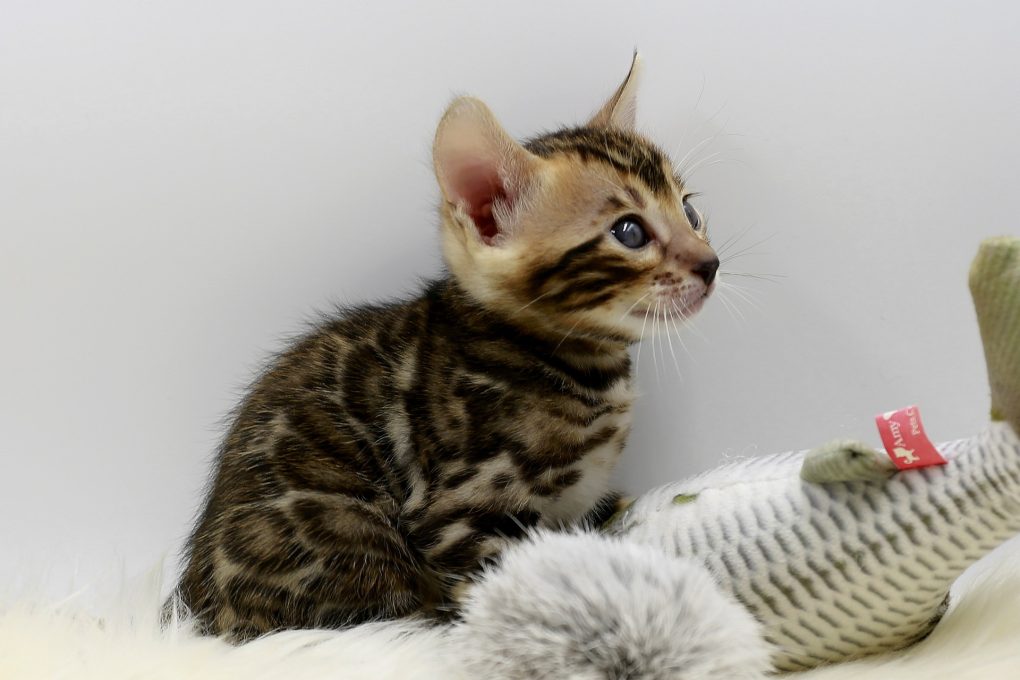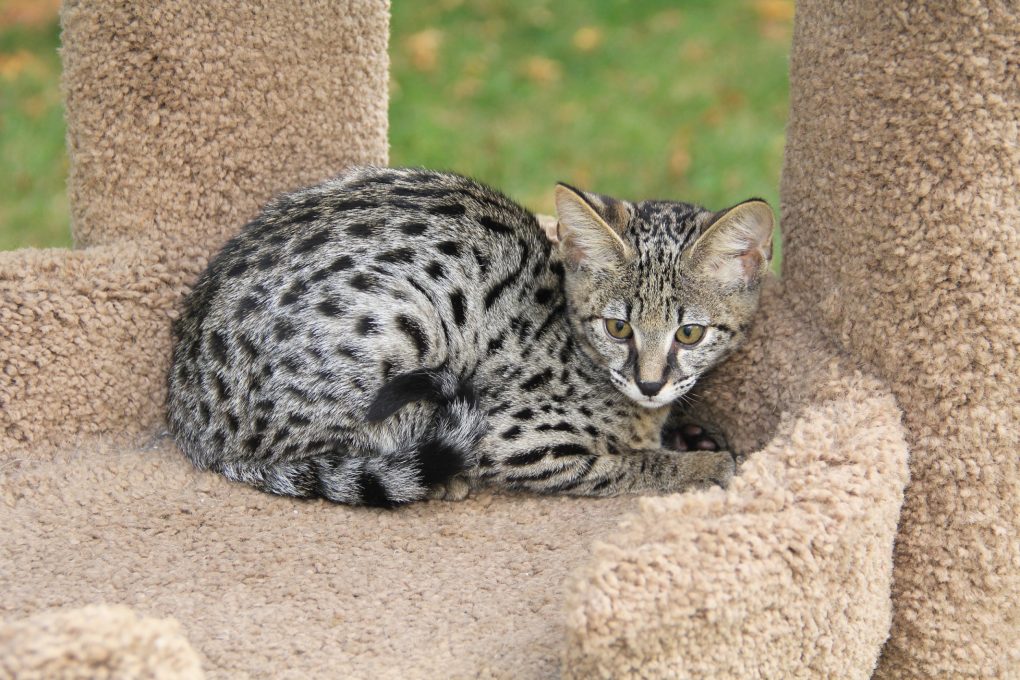What Are Savannah Cats Mixed With: Understanding Breeding Techniques, Its Risks, and Benefits in Savannah Cats
Savannah cats are domestic cats that are mixed with the African serval. The first Savannah cat was produced in the 1980s by breeding a male serval with a Siamese cat. Since then, other domestic cat breeds have been used in Savannah breeding programs, including the Bengal, Egyptian Mau, and Oriental Shorthair.


The percentage of serval genetics in a Savannah cat varies depending on the generation, with first-generation (F1) Savannah cats having the highest percentage of serval genetics and subsequent generations having progressively lower percentages.
Table of Contents
Savannah Cat Breeding Techniques
Breeding Savannah cats can be complex due to the genetic diversity in hybrid creation. Here are some of the breeding techniques used by Savannah cat breeders:
Crossbreeding
To crossbreed a Savannah cat means to breed a domestic cat with a serval, a wild African cat, to create a hybrid offspring. The resulting cat is a Savannah cat, which combines the traits of the domestic cat and the serval. The specific breeding process involves selecting a suitable breeding pair and mating them to produce kittens that inherit both parents’ various physical and behavioral traits.
This creates a hybrid cat larger than most domestic cats, with distinctive markings, long legs, and an active, playful personality. Savannah cats are typically classified into different generations based on the percentage of serval DNA they inherit from their wild parent.
Crossbreeding Savannah cats can be complex due to the genetic diversity in creating a hybrid breed. Breeding must be carefully planned and controlled to maintain the desired physical and temperamental traits of the breed while improving health and genetic diversity.
Selective Breeding
Selective breeding is a technique used by Savannah cat breeders to produce cats with desired physical and temperamental traits. Once the first-generation (F1) Savannah cats are produced through crossbreeding an African serval with a domestic cat, selective breeding is used to create subsequent generations with desired traits.
Breeding cats selectively involves choosing individuals with desirable traits, such as a particular coat color or pattern, body shape, or temperament, and breeding them with other cats with similar traits. Over time, this process results in a breed with a consistent appearance and temperament.
In Savannah cats, breeders use selective breeding to maintain the desired physical traits of the breed, such as their large ears, long legs, and distinctive coat pattern. Breeders also aim to produce cats with a friendly and sociable temperament, as Savannah cats are known for being highly interactive and affectionate.
Backcrossing
Backcrossing is a common breeding technique for developing many hybrid cat breeds, including Savannah cats. It is often used with selective breeding to produce cats with desirable physical and temperamental traits. It involves breeding a Savannah cat with a domestic cat that shares some of the desired traits of the Savannah cat to “bring back” those traits to the offspring.


This involves breeding a Savannah cat with a domestic cat to maintain the Savannah cat’s physical traits while reducing the percentage of serval genetics. This creates Savannah cats of lower generations (F2, F3, etc.) with a more manageable size and temperament.
For example, if a breeder wants to produce a Savannah cat with a more distinctive coat pattern, they may breed a Savannah cat with a domestic cat that has a similar coat pattern. The resulting offspring will have a higher percentage of Savannah cat genetics. The breeder can then breed these cats with another Savannah cat to produce kittens with the desired coat pattern.
Backcrossing can be a valuable tool for breeders to introduce or refine new traits. However, breeders must carefully plan their breeding program and monitor the health and well-being of their cats to avoid genetic problems or health issues that can arise from excessive inbreeding.
Outcrossing
Savannah cats are outcrossed (bred with other cat breeds) to maintain genetic diversity and improve breed health. Outcrossing is typically done with cat breeds with physical or temperamental traits that complement the Savannah cat breed standard.
One common breed used for outcrossing is the Egyptian Mau, which has a spotted coat pattern and temperament similar to the Savannah cat. Another breed used for outcrossing is the Bengal, which can introduce larger size and athleticism to the Savannah cat.
Outcrossing is carefully planned and controlled to maintain the desirable traits of the Savannah cat breed while improving health and genetic diversity. For example, the International Cat Association (TICA) has strict guidelines for outcrossing in the Savannah cat breed, which breeders must follow to maintain the breed’s integrity.
The Risks and Benefits of Savannah Cat Breeding
Risks
Savannah cat hybrids are known to have various health issues, including obesity, joint pain, and epilepsy. In addition to this, Savannah cat hybrid cats may be at risk for various other health problems due to their unpredictable behavior and temperamental nature.


While Savannah cat hybrid cats can make excellent pets in the right hands, it is essential to keep them under the watchful care of owners and ensure that they are receiving regular veterinary care.
Other risks of breeding Savannah cats include reproductive issues, as they can experience difficulty during pregnancy or labor, and a higher risk of complications during delivery. As with all breeds, there is also a risk of passing on genetic disorders to offspring.
Benefits
Savannah cat breeding can result in various benefits for the cats in a breed. For instance, Savannah cat breeders aim to improve health and fertility in their cat populations. Breeders can create a healthy and resilient breed by combining the best features of various local cat populations.
Due to breeding, Savannah cats are generally larger and more athletic than most domestic cats, making them excellent pets for people who enjoy outdoor activities or want a more active pet.
Additionally, by mixing genes from different cat breeds, breeders can create new and unique hybrid cats. The result is cats with enhanced immune systems and increased resistance to diseases. These traits make Savannah cat breeds ideal for pet owners who want to keep their cats healthy and strong over the long term.
